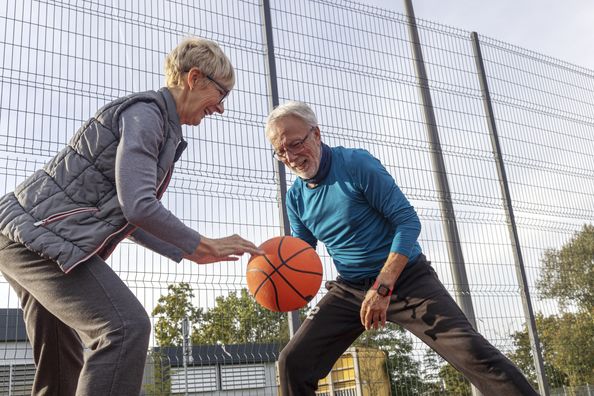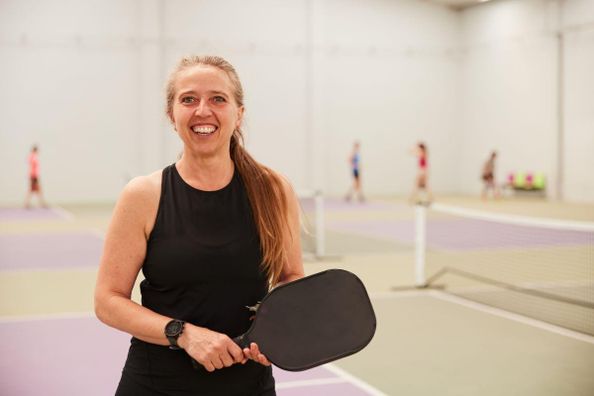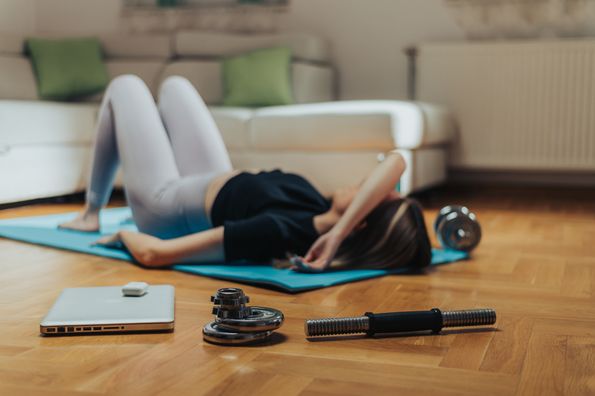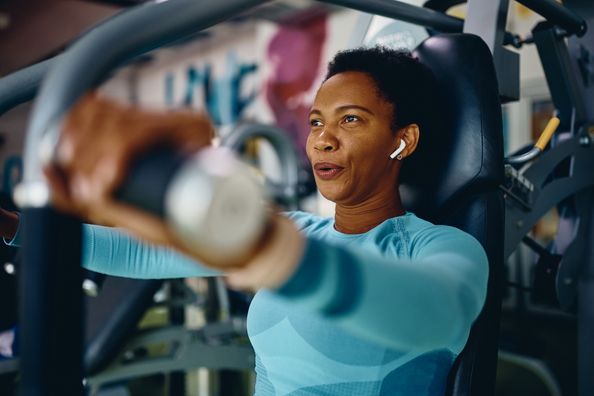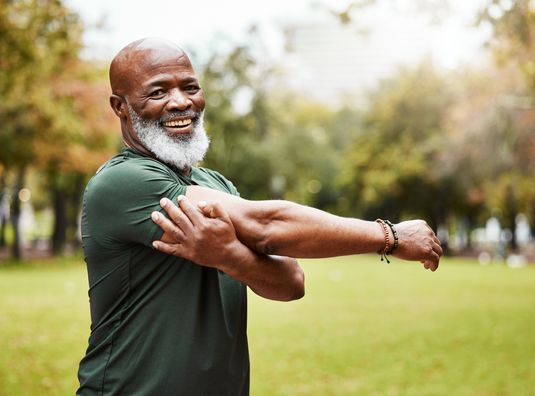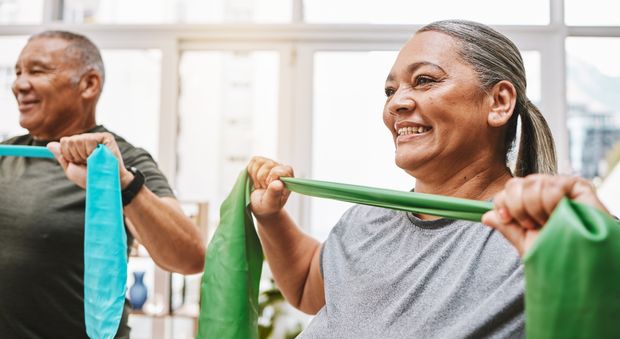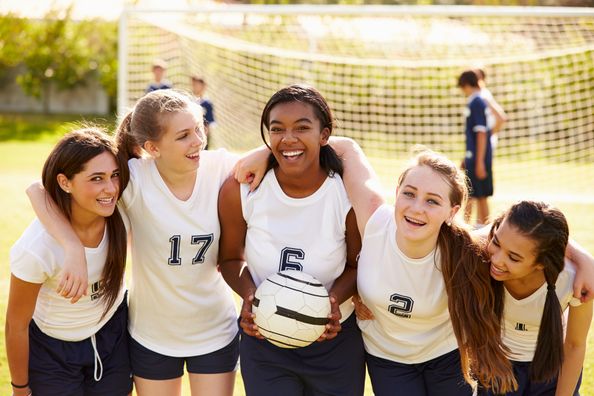If you ever played baseball or tennis, you probably know the feeling: yelling, “I’ve got it” and then completely missing the ball.
It’s normal to have these types of slip-ups with your hand-eye coordination once in a while. Hand-eye coordination is the ability of your eyes to take in information and your brain to send signals from that information to your hands and arms. It allows you to move your hands and arms, and carry out tasks like writing, grabbing objects, or driving.
As you get older, you may notice that your hand-eye coordination is getting worse. That’s part of the normal aging process, so it’s not necessarily cause for alarm. However, it can make tasks like unpacking the groceries or playing catch with your grandchild not as simple as they once were. The good news is that there are ways to maintain your coordination as you get older.
Why Hand-Eye Coordination Gets Worse With Age
In many cases, declining hand-eye coordination is just the result of normal aging.
Losing cells that produce dopamine — the “feel good” hormone — is common as you age. Unfortunately, this can slow down your movements and make coordination difficult.
In addition, the eye and vision problems that are common with age may stand in the way of hand-eye coordination. These problems include:
Glaucoma (a group of eye diseases where you have vision loss due to damage to the nerve at the back of your eye)
- Glaucoma (a group of eye diseases where you have vision loss due to damage to the nerve at the back of your eye)
- Cataracts (cloudy areas in your eye’s natural lens that makes it difficult to see clearly)
- Macular degeneration (a part of your retina — the layer of cells on the back wall of your eye — is damaged and causes vision loss)
There are also lifestyle factors that you have more control over, like diet and exercise.
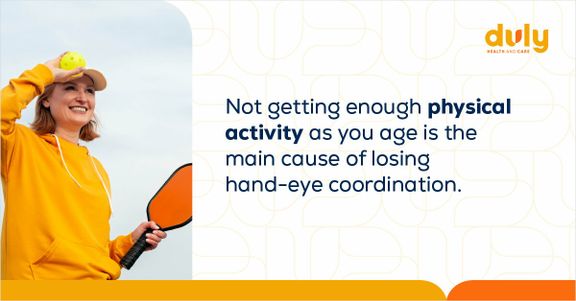
Diet plays a role, as well. Many Americans eat a typical Western diet — one that has large portion sizes, is low in fruits and vegetables, and is high in calories, sugar, fat, and sodium. People over age 60 who eat a Western diet and don’t get enough exercise may have “ministrokes” — strokes that are so tiny that they aren’t noticeable. But just because you can’t see them, that doesn’t mean they are insignificant. These “ministrokes” can disrupt connections in the centers of your brain that regulate coordination and movement, resulting in poor hand-eye coordination. In this way, what you eat affects your coordination.
Physical Activity — Especially Physical Therapy — Is Key
One of your best resources for finding ways to improve hand-eye coordination is a physical therapist (PT). If you choose physical therapy, it’s recommended to work directly with a physical therapist (PT) so that they can put together a program that is tailored to your individual needs and that defines your personal goals. PTs can also teach you the safest and most effective ways to do your exercises.
Whether or not you choose to work with a PT, make sure that you’re keeping active. Physical activity isn’t just important for your physical and mental health — it’s also a known way to improve coordination.
Also read: Staying Active: Hobbies and Exercises For Parkinson’s Disease
If you’ve always wanted to pick up a sport, now is the time. Sports like pickleball, swimming, or golf are all recommended for strengthening hand-eye coordination.
You may also want to try your hand at tai chi — a low-impact exercise that originated in China as a martial art. It combines meditation with a series of deep breathing and slow, flowing movements, and shifting your weight between poses. This improves balance, flexibility, strength, reflexes, and range of motion — which are all elements of movement and hand-eye coordination. A European study found that hand-eye coordination improved by almost 20% by doing tai chi three times a week for three months.
Or, stick to more traditional exercising, such as brisk walking or taking aerobics classes for at least 30 minutes a day for five days a week.
Just remember that you may not be able to play or exercise for as long or with the same intensity as you did in your younger years. You might need to make some adjustments, like trading tennis for pickleball or not swimming quite as many laps.
Find Physical Therapy providers near you >
Work on Hand-Eye Coordination Beyond Physical Activity
There are plenty of other opportunities for improving hand-eye coordination besides going to physical therapy — and some don’t even involve leaving your home. Here are a few ways that you can work on your coordination.
Take Up a Coordination-Friendly Hobby
Grab a ball of yarn and start knitting. Open up a jigsaw puzzle. Pick up a paintbrush. These types of activities work your fine motor skills — the tiny, precise movements you make with your hands and fingers to accomplish tasks. Research suggests that honing fine motor skills can help you maintain coordination as you age.
Keep Up With Your Eye Doctor
Depending on the type of eye problem, your eye doctor may be able to treat it or slow it down so that it has less of an effect on your vision — and potentially, less of an effect on your coordination.
Also read: Should I See an Optometrist or Ophthalmologist?
Try the Mediterranean Diet
Since the typical Western diet can contribute to those ministrokes that affect coordination, changing your diet may make a difference. Try shifting toward the Mediterranean diet, which is one of the top-ranked diets for healthy eating in the US. It is full of plant-based, minimally-processed foods, uses olive oil as the main source of fat, and limits added sugars, saturated fats, and processed or fatty meats.
When to See a Provider
It’s never too early or too late to talk to your provider about improving hand-eye coordination. Your provider can refer you to a PT or you can schedule an appointment to help you develop a personal plan, whether you’re looking to get back some of the hand-eye coordination you’ve lost, or you’re hoping to avoid losing coordination in the future.
Find Physical Therapy providers near you >
Health Topics:

